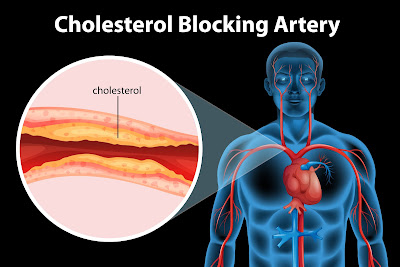Taming the Numbers: Natural Strategies to Control Your Cholesterol
Cholesterol is a waxy substance found in your blood. While it plays a vital role in some bodily functions, high cholesterol levels can significantly increase your risk of heart disease, the leading cause of death worldwide. The good news is that there are effective ways to manage your cholesterol levels naturally, reducing your risk of heart complications. This guide explores natural strategies you can adopt to keep your cholesterol in check and promote a healthier heart.
Cholesterol and Its Impact
There are two main types of cholesterol:
- LDL (Low-Density Lipoprotein): Often referred to as "bad" cholesterol, LDL deposits can build up in your arteries, narrowing the pathways and hindering blood flow. This can lead to heart attack or stroke.
- HDL (High-Density Lipoprotein): Considered "good" cholesterol, HDL helps remove LDL cholesterol from your arteries, transporting it back to the liver for breakdown.
Natural Strategies to Lower Your Cholesterol
Here are some key strategies you can implement to lower your LDL cholesterol and boost your HDL cholesterol levels:
- Embrace a Heart-Healthy Diet: Limit saturated and trans fats found in processed foods, fried foods, and red meat. Instead, focus on incorporating healthy fats like those found in avocados, nuts, olive oil, and fatty fish (salmon, tuna) into your diet. These good fats can help lower LDL and raise HDL levels.
- Increase Soluble Fiber Intake: Soluble fiber, found in fruits, vegetables, beans, and whole grains, traps cholesterol and helps eliminate it from the body. Aim to include a variety of these fiber-rich foods in your daily meals and snacks.
- Manage Weight: Maintaining a healthy weight can significantly improve your cholesterol profile. If you're overweight or obese, losing even a modest amount of weight can have a positive impact on your cholesterol levels.
- Get Moving: Regular physical activity promotes overall health and specifically helps lower LDL cholesterol while raising HDL cholesterol. Aim for at least 150 minutes of moderate-intensity exercise or 75 minutes of vigorous-intensity exercise per week.
- Don't Forget the Smoke-Free Life: Smoking significantly increases your risk of heart disease and contributes to unhealthy cholesterol levels. Quitting smoking is one of the most impactful changes you can make for your heart health.
- Moderate Alcohol Consumption: Excessive alcohol consumption can raise your triglycerides (another type of fat in the blood) and negatively impact your cholesterol profile. Moderation is key; consult your doctor for personalized recommendations.
Additional Tips for a Heart-Healthy Lifestyle
- Manage Stress: Chronic stress can raise blood pressure and negatively impact cholesterol levels. Relaxation techniques like yoga, meditation, or deep breathing can be helpful.
- Schedule Regular Checkups: Regular visits with your doctor allow for monitoring your cholesterol levels and overall heart health. Early detection and intervention are crucial for preventing complications.
- Consider Supplements: Some natural supplements like fish oil or psyllium husk fiber may offer additional benefits for lowering cholesterol. However, discuss these options with your doctor before starting any supplements.
Conclusion
By adopting these natural strategies and incorporating heart-healthy habits into your lifestyle, you can take control of your cholesterol levels and significantly reduce your risk of heart disease. Remember, a combination of dietary changes, regular exercise, and managing stress is key. Consult your doctor to create a personalized plan for optimal heart health. With proactive measures, you can live a long and healthy life with a happy heart.
